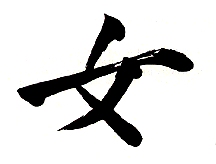 Photo Caption and Credits
Photo Caption and Credits
Women writers can be found throughout most of China's imperial history; from the sixteenth century on they begin appearing in considerable numbers. Yet only a small handful of writings by women were included in the literary canon before modern time. Even during most of the twentieth century, women writers seem to have written mainly about women's problems, rather than turning their attention to the question of China's destiny as a nation, which so preoccupied their male counterparts. They were also far less likely to indulge in descriptions of nature in their writings, perhaps assuming that nature, like nationalism, was a male preserve. Only with the 1980s are some of these inhibitions beginning to give way. The course will set forth contrasts between traditional, modern, and contemporary writings by and about Chinese women. It will highlight the question of canon formation, which it will explore in terms of who writes, what they write, and why various changes occur.
COURSE FORMAT: Discussion Seminar
Level: UG Credit: 1.00 Gen Ed Area & Dept: HA AL&L
Prerequisites: None
Last Updated on MAR-10-1997
The Chinese character "niu" is the symbol for "woman."
Cox, Sue. FEMALE PSYCHOLOGY:THE EMERGING SELF. New York: St Martin's Press, 1981
Copyright Wesleyan University, Middletown, Connecticut, 06459